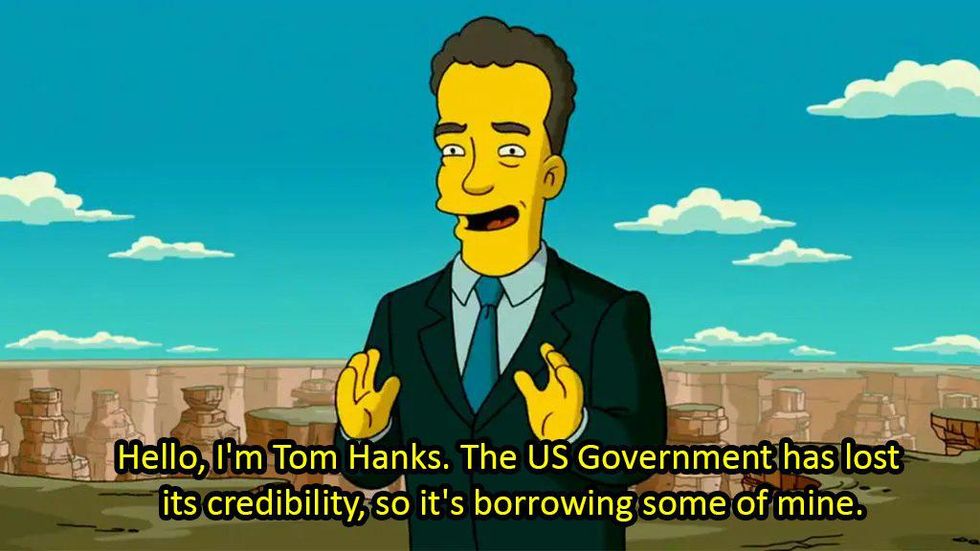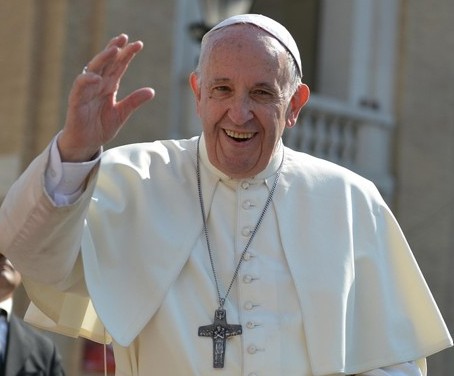
Three of the four horsemen
via CNBC
Well, Trump is out.
Joe Biden’s Inauguration into Presidential office unfolded in a spectacle of patriotism with a slight undercurrent of fear following the white supremacist insurrection at the Capitol in early January.
Though the physical event was small — due to the enhanced security measures enacted in fear of violence or resistance against the transition of power, and the persisting pandemic — and more than 191,500 flags stood in place of the people that usually crowd the surrounding area, the event was filled with prominent guests and high profile performances, both in person and virtual.
The virtual portion of the day was a mixture of performances, speeches, and video compilations ‘hosted’ by Tom Hanks.

As part of the proceedings, former Presidents Barack Obama, George W. Bush, and Bill Clinton appeared in a video giving a joint speech, which had the vibe of a group project where you didn’t get to choose your partners and you got stuck with some kids you neither knew or liked.
The three most recently joined forces to volunteer to take the COVID-19 vaccine when it was first approved, and like an aged boyband, they came back for one night only, streamed live across America.
In their video, the three ex-presidents congratulated President Joe Biden and stressed the importance of peaceful transitions of power, ostensibly trying to lead by example in a show of bipartisan unity while making a point about the noticeably absent President Trump (who was on his way to Mar-a-Lago with his crying conspirators/children).
The message of the former presidents came alongside Biden urging for “unity” in his Inaugural address.
But what does this mean?
From the beginning of his Inauguration speech, Biden declared his presidency one of “history and hope. Of renewal and resolve.” Referring to the historic nature of his cabinet and Kamala Harris’s historic position as Vice President, Biden’s self-congratulatory remarks also stir up questions.
The intentionally indefinite rhetoric asks: “hope” of what, and for whom? “Renewal” of what? Leaving an era defined by the slogan “Make America Great Again,” it feels dangerous to tie a Presidency to the idea of some vague longing.
The politics of nostalgia allow the romanticization of a past which has always had as many problems as the present, if not more. Biden’s emphasis on having a Presidency inspired by his predecessors refers to the presidency of Obama, but also to the other two horsemen of the inauguration apocalypse and the Founding Fathers … who we all know were flawed at best.
The desire to appeal to the American mythos reduces the oppression inculcated into US democracy to a footnote in the story — despite the fact that those institutions of inequality are prominent today.
Biden proclaimed that “the American story depends not on any one of us, not on some of us, but on all of us. On ‘We the People’ who seek a more perfect Union. This is a great nation and we are a good people.”
… is that true?
While I would like to believe it, and perhaps there is room for more optimism and benefit of the doubt in an inaugural address than I’m accustomed to in life, moralizing the United States as a good nation filled with good people perpetuates the myth of American exceptionalism and allows for complacency.
We could be good people in a great nation, but the overpowering institutions of oppression and violence that we are socialized into make it easier to not be.
Biden did acknowledge that there is work still to be done, but it is dangerous to position the work of progress as a choice, rather than an imperative.
Biden’s path to progress is simple: unity.
In one of the most pivotal passages of his speech, he said: “Speaking of unity can sound to some like a foolish fantasy. I know the forces that divide us are deep and they are real. But I also know they are not new. Our history has been a constant struggle between the American ideal that we are all created equal and the harsh, ugly reality that racism, nativism, fear and demonization have long torn us apart. The battle is perennial. Victory is never assured.”
In this moment, Biden acknowledged the history of oppression in the United States and the deep-rooted divisions in its present. However, the proverbial good vs. evil dichotomy that he uses is a convenient scapegoat. It is easy to say that there are two sides of people, torn apart by outside forces, that just need to meet each other in the middle. But this is not how division in America has played out.
Progress in America cannot be a meeting in the middle of two forces with equal power, because that’s not what the political and social landscapes look like. The forces of “racism, nativism, fear and demonization” have not “torn us apart” — those forces have separated and othered marginalized communities and excluded them from the American ideal.
Therefore, it is not the collective acceptance of the idea of “unity” that will heal the country, it is a commitment by the privileged to root out the divisive forces within themselves.
Unity and healing must happen as a result of progress, not at the expense of it. Biden’s rhetoric leaves too much room for regression. But we must not pause to soothe the egos of white supremacists — their goals are not our goals. Biden’s path to unity needs to look like accountability, not acquiescence.
In a recent Tweet, activist Bree Newsome stated that “The only path toward ‘unity’ is one that dismantles white supremacy.” Anything else would be a continuation of the same structures that “resulted in the Civil War, Jim Crow, the Trump era & the insurrection that occurred two weeks ago. “
Many are feeling the gaps in Biden’s rhetoric that could allow for placid and ultimately unsatisfying “progress” and citing the urgent importance of moving forward, rather than back to some fabled better days of a pre-Trump era.
The pre-Trump era created conditions for the Trump era. The current violence is not some aberration or some strange glitch in the matrix. It is a direct consequence of previous failures to root out the insidiousness of whiteness at the root of the United States.
The Problem With Moderation:
The shifting nature of Biden’s address — his willingness to talk about the fact of American institutionalized oppression and speak out against white supremacy, but the inability to articulate the deep internal work that we all have to do for progress — does not present a progressive pillar to build the next four years on.
It builds one that reflects his whole career: willing to inch towards “slow progress,” but more concerned with moderation than radical change.
But moderation is not the way to establish real change. Moderation allows for complacency and, as Newsome articulated, “the ‘return to normalcy’ narrative is a call to settle for surface-level displays of civility diversity in the aftermath of Trump’s brutish behavior without any real push for systemic change.”
Even in the highest offices of the two-party government lie dangerous white supremacists who incited the riots alongside Trump and remain loyal to the MAGA following — so if bipartisanship looks like coalescing into an agreeable union that includes and validates those beliefs, I don’t want it.
Instead, change has to look like examining the conditions within ourselves and our society which gave those people their platforms and amend those with an eye towards accountability.
The idea of “accountability” has been thrown around so much this election that it has become diluted. Accountability has to be active. It has to not just acknowledge the past, but use those acknowledgments to work diligently towards a new future.
While it’s hard to predict how much Biden’s speech was well-crafted rhetoric and how much was committment to action, the prominent performativity of the ex-President’s club does not bode well for radical change.
Rather, it signals a clinging onto old ideas of respectability and camaraderie between the powerful and the persistence of the same structures that allowed for the past violence to carry themselves into the future. It confirms that Trump’s most egregious act was disrupting the illusion of American exceptionalism, which has been long held up by mythology and militarism.
But that disruption was necessary. And it is with those new eyes that we are more critical of Bush, Clinton, Obama, and the entire systems that elected them We have to be.
- ‘Unity is the path forward’: Joe Biden urges nation to come together … ›
- Read President Biden’s Full Inauguration Speech Transcript … ›
- Biden’s Inauguration Speech to Emphasize American Unity – WSJ ›
- Joe Biden’s inauguration speech, annotated – Washington Post ›
- Biden’s inauguration speech calls for unity – it won’t be easy – BBC … ›














